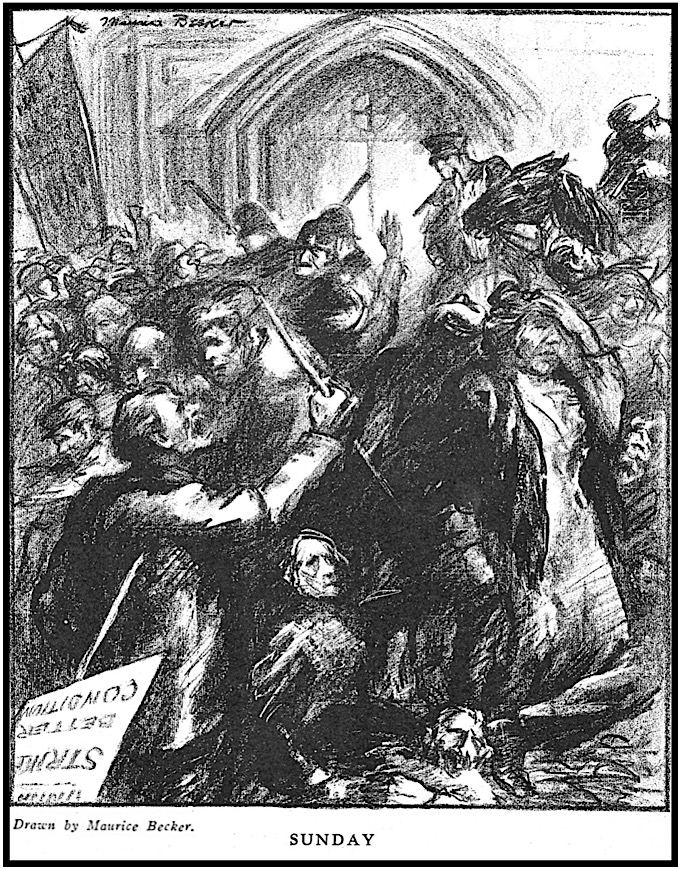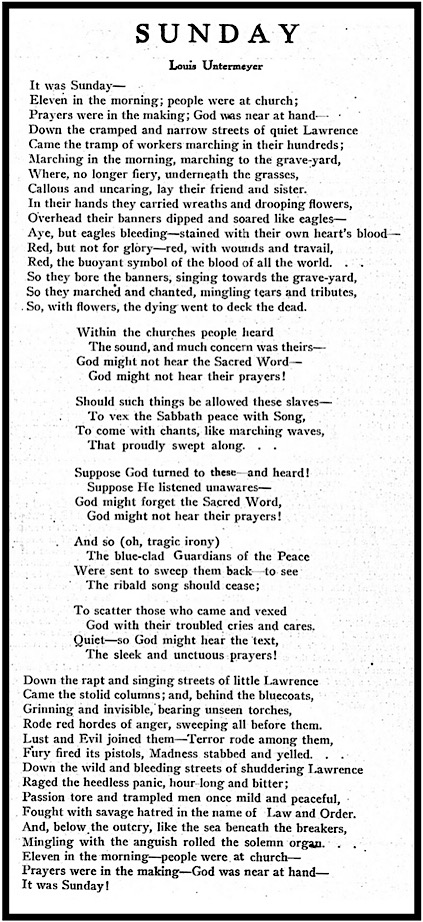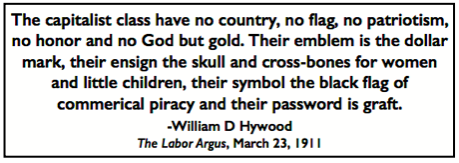 —————
—————
Hellraisers Journal – Sunday May 4, 1913
Paterson, New Jersey – The Arrest of Bill Haywood and Adolf Lessig
From the International Socialist Review of May 1913:
The Arrest of Haywood and Lessig
By Phillips Russell
DETERMINED that the 25,000 silk strikers of Paterson, N. J., should not listen to William D. Haywood on Sunday, March 30, the guardians of Paterson’s law and order, seized Haywood and Adolph Lessig on their way to Haledon and, in the interests of the mill owners, secured Haywood’s conviction and sentence to six months at hard labor, and Lessig to six months.
No single act or process in the proceeding had the least semblance of legality, and no attempt to make even a show of legality was made. The mill owners are represented on Paterson’s Police Commission by one of themselves. They appointed as Recorder one James F. Carroll, notorious in the city as a bar room politician. They wanted Haywood and Lessig out of the way; they had them seized by their police; they put them behind the prison bars, and intended them to stay there.
A mass meeting had been called for Sunday, March 30, in Lafayette Oval, which had been secured for the purpose by the strikers. On the preceding Saturday Police Chief Bimson issued an order prohibiting the meeting, but partly because of the lateness of the order’s appearance, but more largely because they believed they had the rights of free assemblage and free speech, the strikers ignored the order, and at the appointed hour began to pour in thousands down the roads leading to the meeting place.
In the meantime, a squad of special police detailed for special duty, namely, to prevent the meeting and disperse the crowd, held up Haywood and Lessig a block before they reached the Oval. The police informed Haywood that no meeting would be allowed, and that if he attempted to speak he would be arrested, whereupon the strikers within hearing distance shouted “On to Haledon!”
The cry was taken up by the thousands assembled, Haywood assenting: “All right we’ll go to Haledon,” and he began to walk the two miles beyond which lies the little Socialist municipality, followed by the strikers who had just learned that in Paterson they had no rights.
The crowd was perfectly orderly, although without any formation, but when it had got within half a block of the city’s limits the patrol wagon thundered through the mass of men, women and children to where Haywood and Lessig were walking in front. Motorcycle police had noted the general direction of the crowd and had rushed for the wagon, which was hooted and jeered by the strikers as it dashed directly for Haywood and Lessig.
Police Sergeant Ryan jumped out of the wagon, pointed at Haywood, saying, “You’re under arrest!” and grabbed Lessig, at the same time shouting, “Get Tresca!” Carlo Tresca, however, had dropped behind. As the wagon dashed by on its way to Haywood, some friends seized Tresca and hurried him into the house of a friend from whence he smiled pleasantly at the police who came to seize him.
After Haywood and Lessig were under arrest, the police, in a frantic effort to drive back the crowd, met with one who refused to be hurried. This was Messari, who was arrested and later arraigned on the same charges as the two principal defendants, some of the police conveniently swearing he was with them, as the amended charge required three defendants to make it legal.
“Have you a warrant?” asked Haywood of the policemen who rode with him in the wagon.
“I have,” answered one of them.

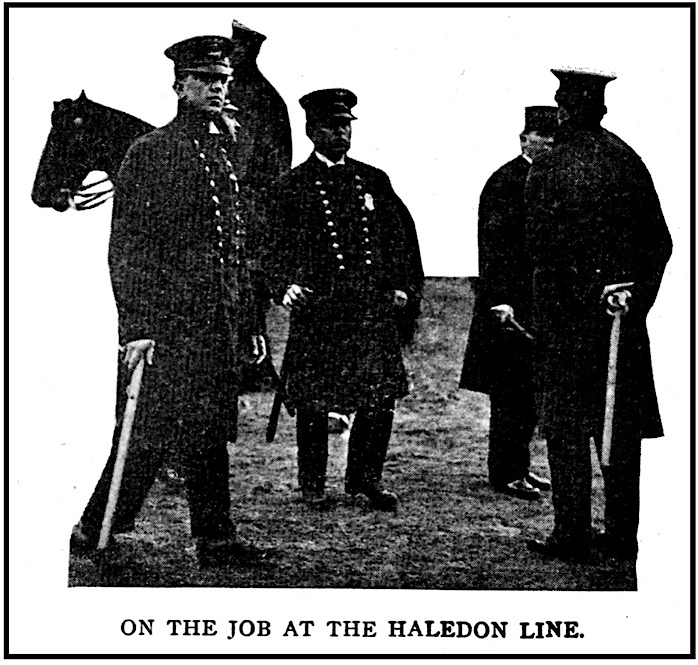
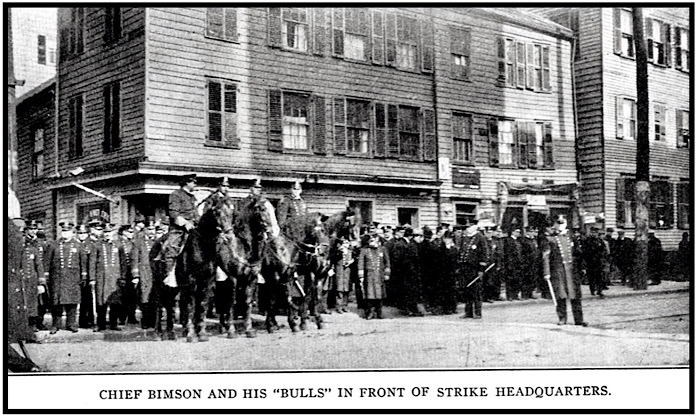
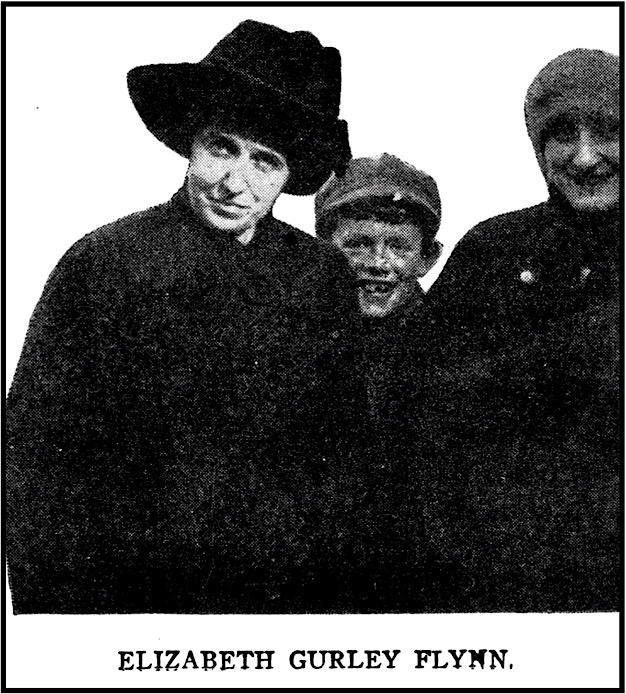
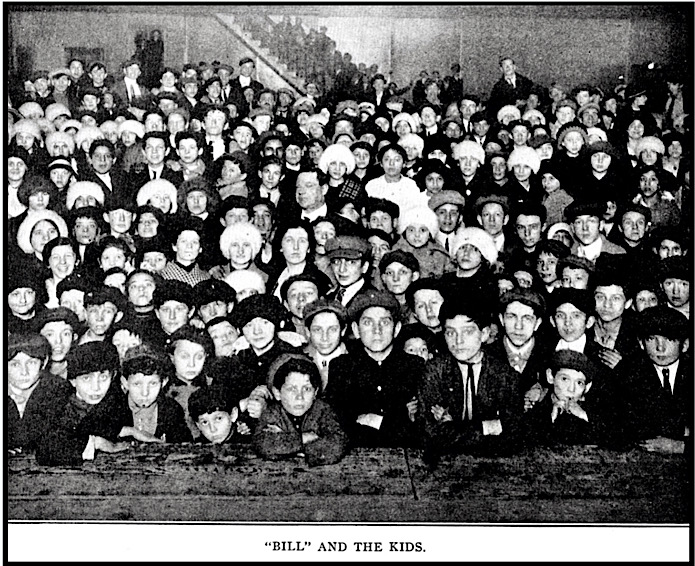
 —————
—————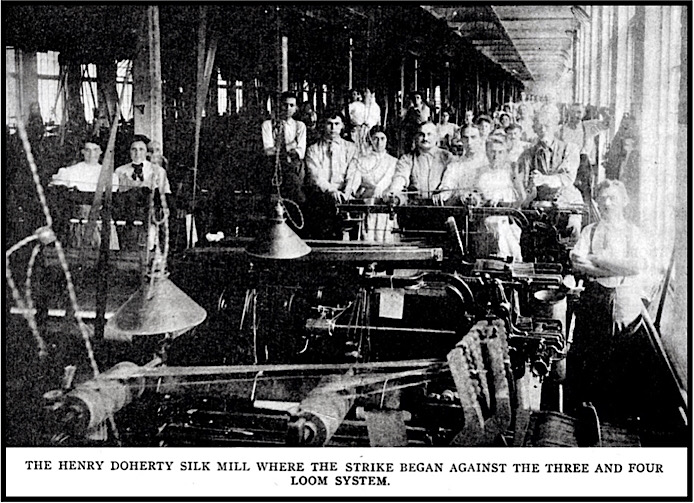
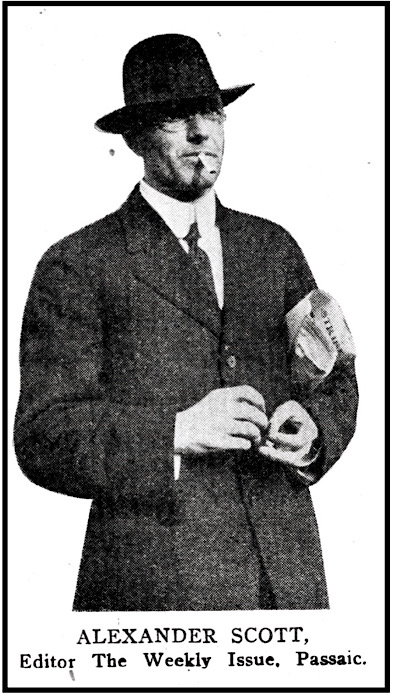
 —————
—————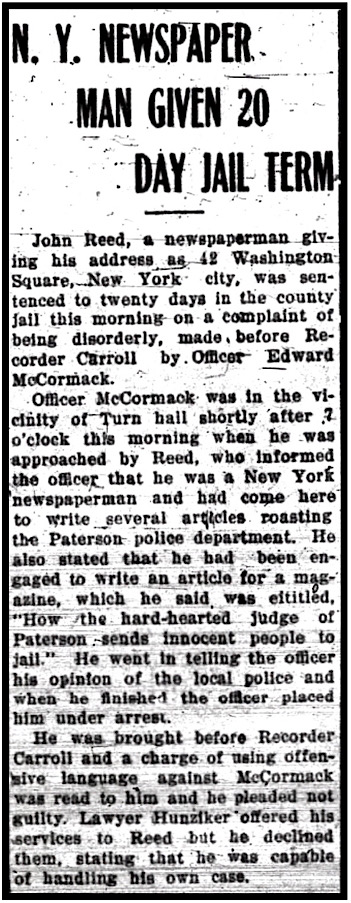
 —————
—————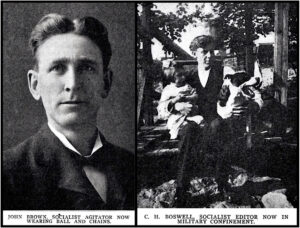
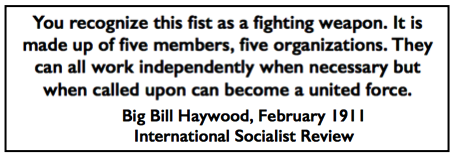 —————
—————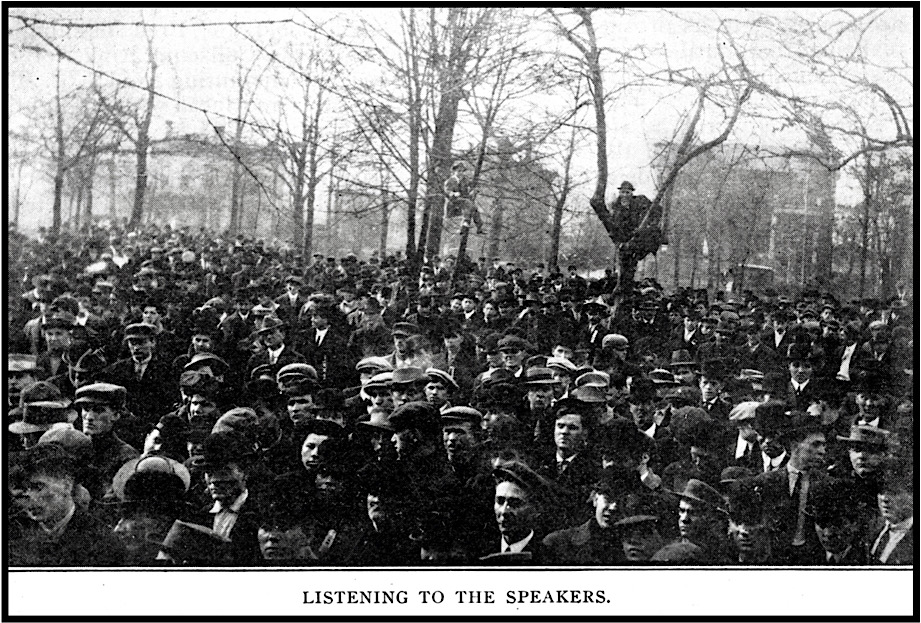
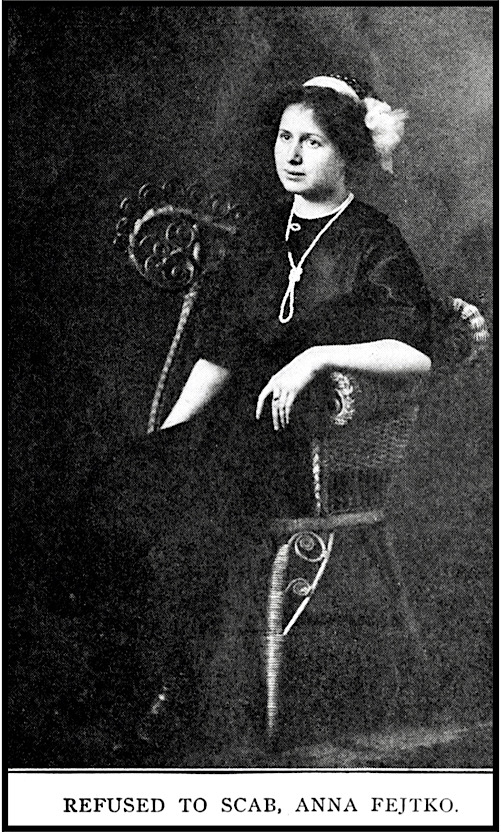
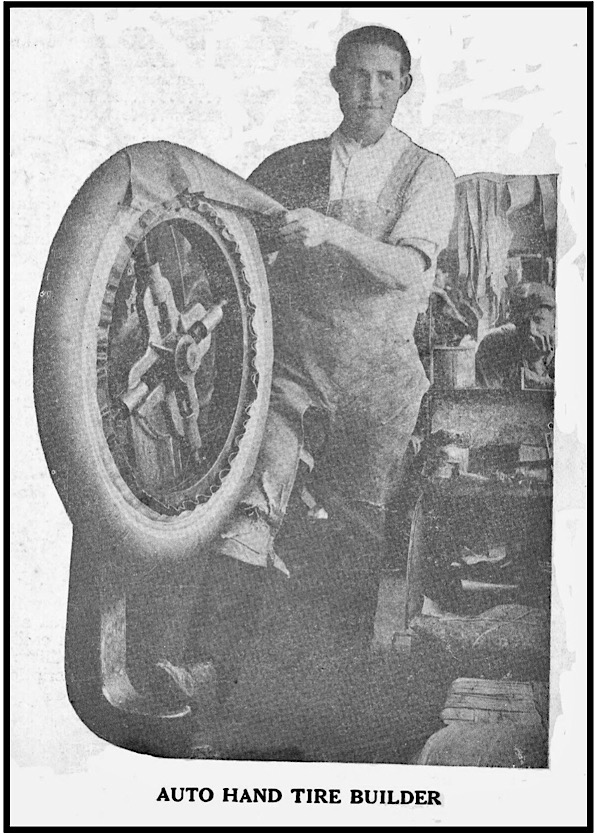
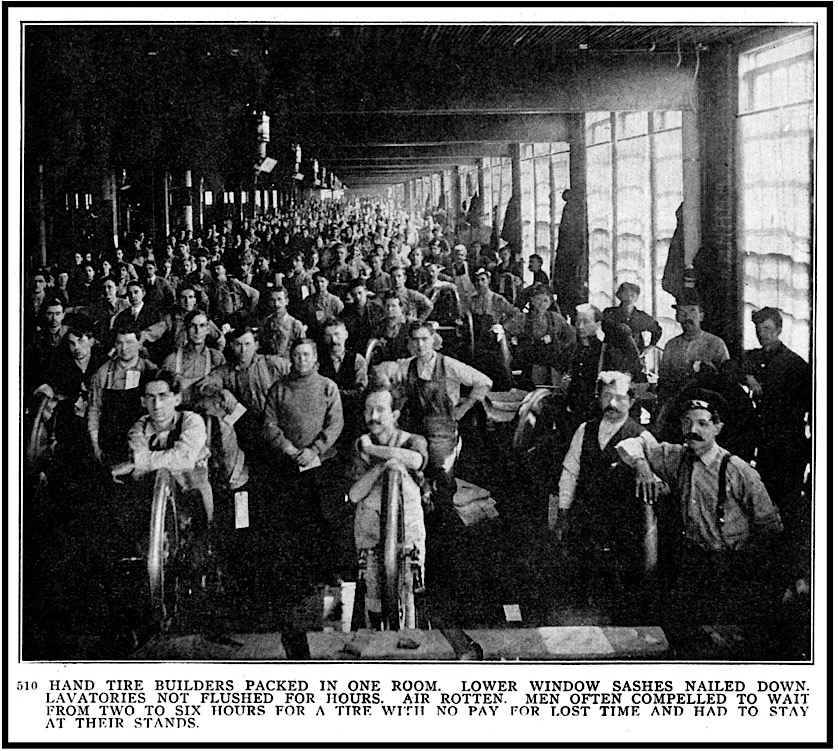
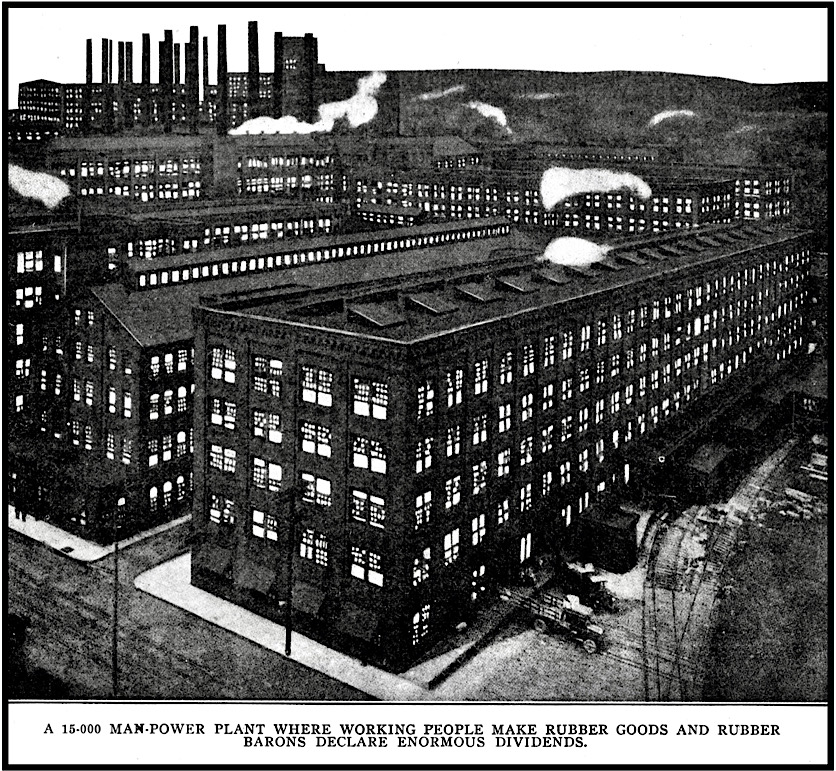
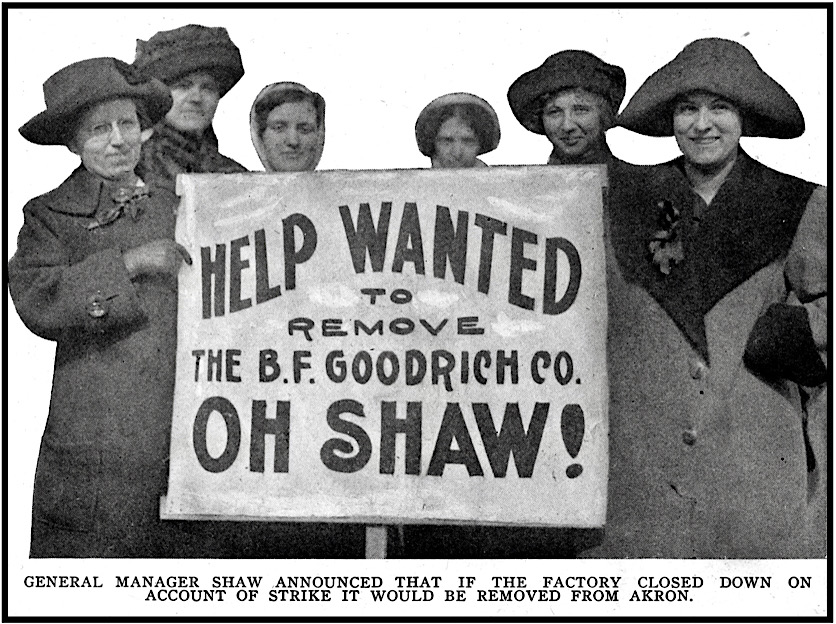
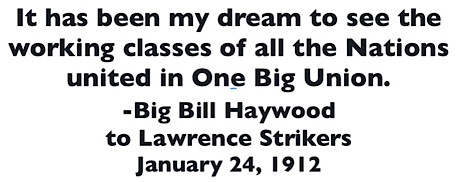 —————
—————